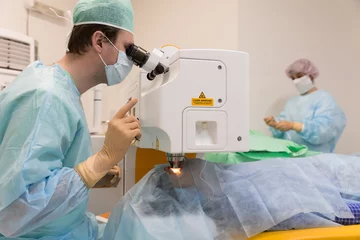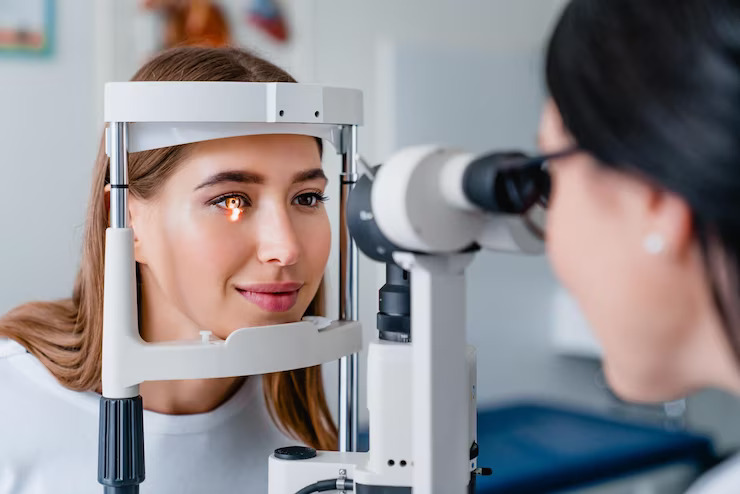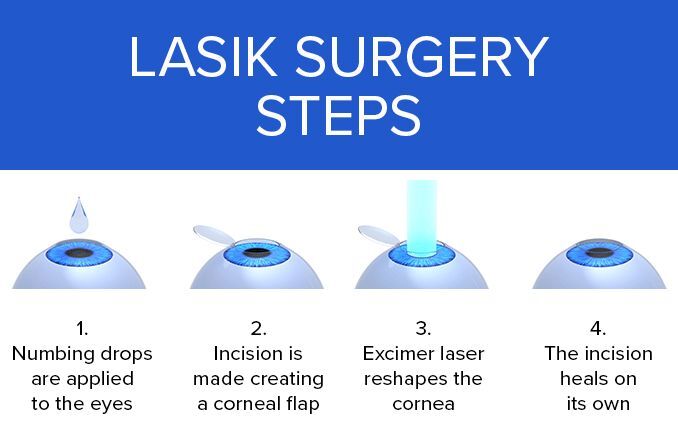Choosing A Qualified LASIK Surgeon: Important Considerations
Choosing a qualified LASIK surgeon is a critical decision when considering laser eye surgery for vision correction. LASIK (Laser-Assisted In Situ Keratomileusis) has become a popular and effective procedure for treating refractive errors such as nearsightedness, farsightedness, and astigmatism. However, the success and safety of LASIK surgery largely depend on the expertise and experience of the surgeon performing the procedure. This article aims to guide you through the essential considerations in selecting a qualified LASIK surgeon, ensuring you make an informed choice for your vision care needs.
Importance of Choosing the Right LASIK Surgeon
LASIK surgery involves reshaping the cornea to correct refractive errors, thereby reducing or eliminating the need for glasses or contact lenses. While LASIK is generally safe and effective, choosing an experienced and reputable surgeon enhances the likelihood of achieving optimal outcomes and minimizing potential risks. Here’s what to consider when evaluating LASIK surgeons:
Qualifications and Credentials
The first step in selecting a LASIK surgeon is verifying their qualifications and credentials. Look for a surgeon who is board-certified and licensed to practice ophthalmology. Board certification ensures that the surgeon has undergone rigorous training and meets the standards set by national boards or organizations dedicated to ophthalmic surgery.
Experience in LASIK Surgery
Experience matters significantly in LASIK surgery. Find out if the surgeon has performed any LASIK operations particularly. A seasoned LASIK surgeon will have performed thousands of surgeries, demonstrating proficiency in handling various cases and achieving consistent results. Ask how long they have been performing LASIK and their success rate in terms of patient satisfaction and visual outcomes.
Specialization in Refractive Surgery
Choose a surgeon who specializes in refractive surgery and has dedicated their practice to vision correction procedures like LASIK. Specialization indicates a deeper understanding of the intricacies of refractive errors and advanced techniques in laser eye surgery. Surgeons who focus on refractive surgery are more likely to stay updated with the latest advancements and technologies in the field.
Technology and Equipment
The technology and equipment used during LASIK surgery play a crucial role in its success. A reputable LASIK surgeon will have access to state-of-the-art laser technology and diagnostic equipment. Advanced lasers, such as femtosecond lasers for creating corneal flaps and excimer lasers for reshaping the cornea, contribute to precision, safety, and better visual outcomes.
Patient-Centered Approach
An ideal LASIK surgeon prioritizes patient care and provides personalized attention throughout the treatment journey. They should conduct thorough pre-operative evaluations, discuss realistic expectations, and address any concerns or questions you may have. A patient-centered approach involves clear communication, transparency about the procedure, and comprehensive post-operative care.
Reputation and Reviews
Research the reputation of the LASIK surgeon and their practice. Read patient reviews and testimonials to gauge their satisfaction levels and experiences. Positive reviews highlighting successful outcomes, professionalism, and compassionate care are indicators of a trustworthy surgeon. Additionally, consider referrals from family, friends, or your regular eye care provider.
Consultation and Evaluation
Schedule a consultation with the LASIK surgeon to discuss your candidacy for LASIK surgery. During the consultation, the surgeon will evaluate your eye health, assess your refractive error, and discuss your medical history to determine if you are a suitable candidate for LASIK. Use this opportunity to ask about the surgeon’s approach to treatment, expected results, potential risks, and the recovery process.
Safety and Facility Accreditation
Ensure that the LASIK surgeon operates in a safe and accredited surgical facility. Accreditation by recognized organizations, such as the Accreditation Association for Ambulatory Health Care (AAAHC) or the Joint Commission, signifies adherence to stringent standards for patient safety, equipment sterilization, and surgical practices.
Cost and Financing Options
While cost should not be the primary factor in choosing a LASIK surgeon, it is essential to understand the fees involved and explore financing options if needed. Discuss the total cost of LASIK surgery, which may include pre-operative evaluations, the procedure itself, post-operative care, and any potential enhancements or revisions.
Follow-Up Care and Support
Post-operative care is crucial for monitoring your recovery and ensuring optimal healing after LASIK surgery. Inquire about the surgeon’s follow-up care protocol, including scheduled visits, monitoring of visual acuity, and management of any complications that may arise. A reputable LASIK surgeon will provide ongoing support to address your needs and ensure long-term satisfaction with your results.
Conclusion
Choosing a qualified LASIK surgeon is a pivotal step toward achieving a clear vision and enhancing your quality of life. By considering these important factors—qualifications, experience, specialization, technology, patient-centered approach, reputation, consultation process, safety measures, cost considerations, and follow-up care—you can make an informed decision that aligns with your vision care goals. Invest time in researching and consulting with LASIK surgeons to find a trusted provider who prioritizes your safety, comfort, and visual outcomes. Remember, the right LASIK surgeon will guide you through the journey of vision correction with professionalism, expertise, and a commitment to excellence in eye care.
For any further queries, Plz visit drvivekgarg.in








